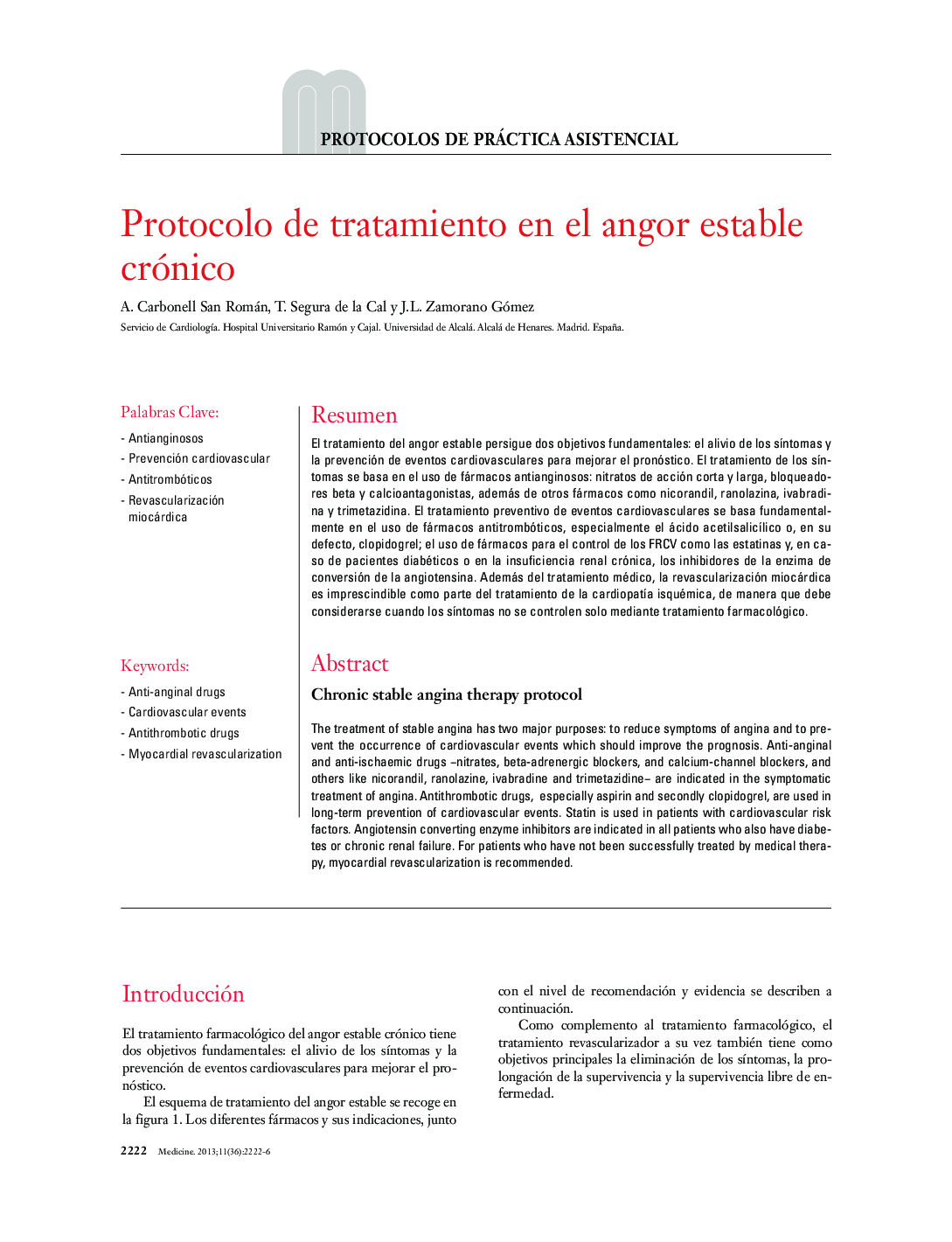| Article ID | Journal | Published Year | Pages | File Type |
|---|---|---|---|---|
| 3806893 | Medicine - Programa de Formación Médica Continuada Acreditado | 2013 | 5 Pages |
Abstract
The treatment of stable angina has two major purposes: to reduce symptoms of angina and to prevent the occurrence of cardiovascular events which should improve the prognosis. Anti-anginal and anti-ischaemic drugs ânitrates, beta-adrenergic blockers, and calcium-channel blockers, and others like nicorandil, ranolazine, ivabradine and trimetazidineâ are indicated in the symptomatic treatment of angina. Antithrombotic drugs, especially aspirin and secondly clopidogrel, are used in long-term prevention of cardiovascular events. Statin is used in patients with cardiovascular risk factors. Angiotensin converting enzyme inhibitors are indicated in all patients who also have diabetes or chronic renal failure. For patients who have not been successfully treated by medical therapy, myocardial revascularization is recommended.
Keywords
Related Topics
Health Sciences
Medicine and Dentistry
Medicine and Dentistry (General)
Authors
A. Carbonell San Román, T. Segura de la Cal, J.L. Zamorano Gómez,
